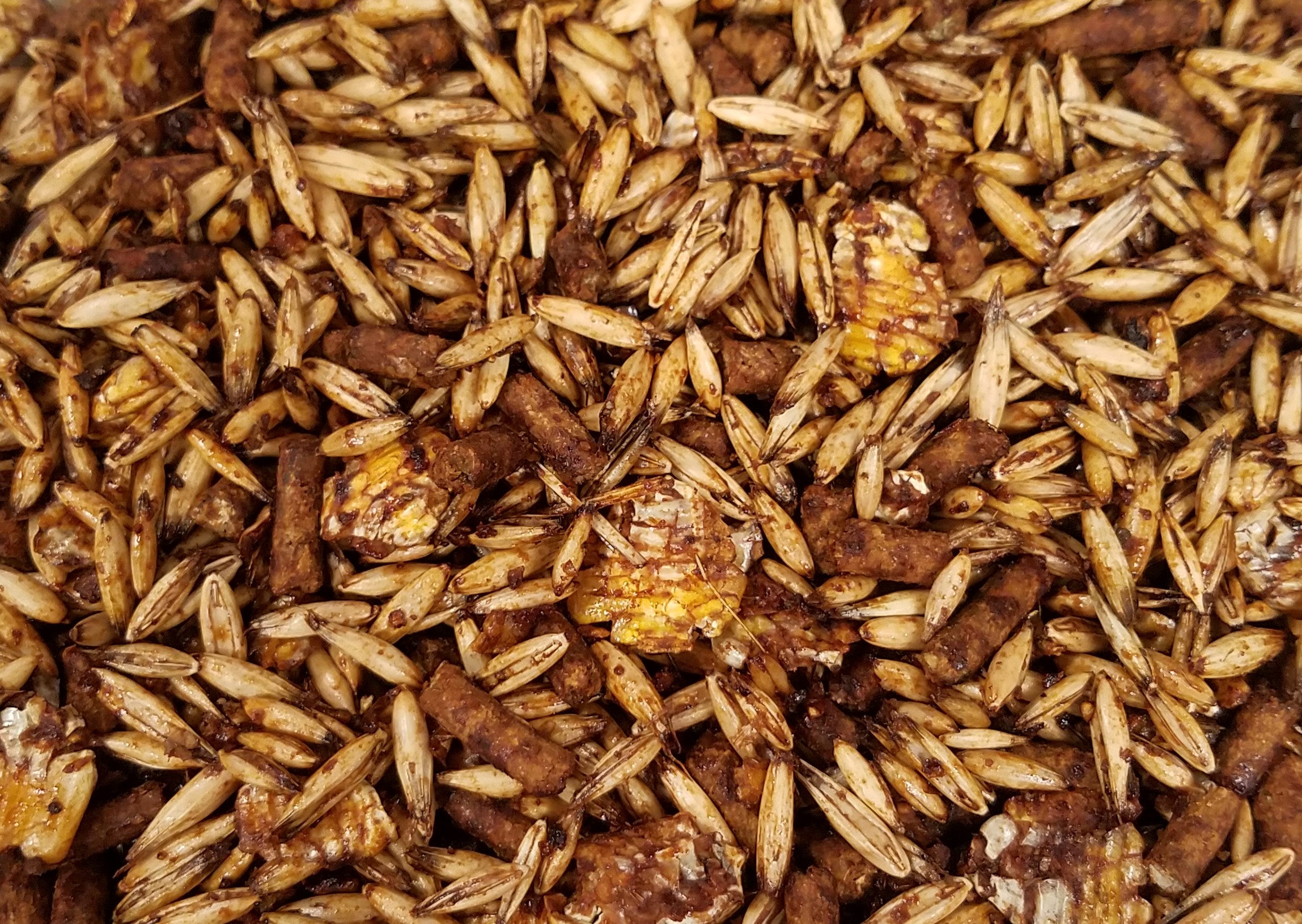Types of horse feed

Horse feed, also called horse feedstuffs or horse feed rations, refers back to the various kinds of food and supplements provided to horses to meet their nutritional requirements. The type and quantity of horse feed depend upon factors such as the horse's age, dimension, breed, activity stage, health condition, and the quality of forage obtainable.
Here are some widespread forms of horse feed:
Forage: The basis of a horse's food regimen is forage, which incorporates hay and pasture grass. Hay is dried grass or legumes that provide important fiber, carbohydrates, and a few nutrients. Pasture grazing permits horses to eat fresh grass, which is a natural a half of their diet.

Concentrates: Concentrates are supplementary feeds that provide greater ranges of power, protein, nutritional vitamins, and minerals. They are usually fed to horses with greater power necessities or these in coaching or performance actions. Common concentrates include:
Grain Mixes: These are commercially prepared mixes of grains, such as oats, barley, corn, and other grains, mixed with added vitamins and minerals.
Pelleted Feeds: Pelleted feeds are processed and compressed into pellets, making certain a consistent nutrient content in every bite.
Sweet Feeds: Sweet feeds are grain mixes with added molasses for palatability and power.
Supplements: Some horses could require additional supplements to fulfill specific dietary needs. Common supplements embrace vitamins, minerals, electrolytes, and joint help products.
Treats: Occasionally, horse owners might provide treats, such as apples, carrots, or commercial horse treats, as rewards or for enrichment. However, treats ought to be given sparsely to keep away from overfeeding.
When choosing horse feed, it's important to consider the following:
Quality: Choose high-quality hay, pasture, and concentrates to make sure the horse receives the necessary vitamins.
Balance: Ensure the horse's diet is balanced, assembly their particular nutritional necessities based mostly on age, activity degree, and health standing.
Feeding Schedule: Establish a constant feeding schedule to help maintain a healthy digestive system and prevent digestive upset.
Water: Always provide contemporary, clear water to horses, as water is crucial for his or her well-being and aids in digestion.
Consult with a Veterinarian or Equine Nutritionist: If you're unsure concerning the appropriate feed on your horse or if your horse has particular dietary wants or well being issues, consult with a veterinarian or equine nutritionist for professional advice.
Remember that each horse is unique, and their dietary wants may range. https://animalfeedsstaffordshire.co.uk/best-horse-feed-staffordshire/ -made feeding plan primarily based on particular person necessities will assist guarantee your horse stays healthy and performs at their finest..
